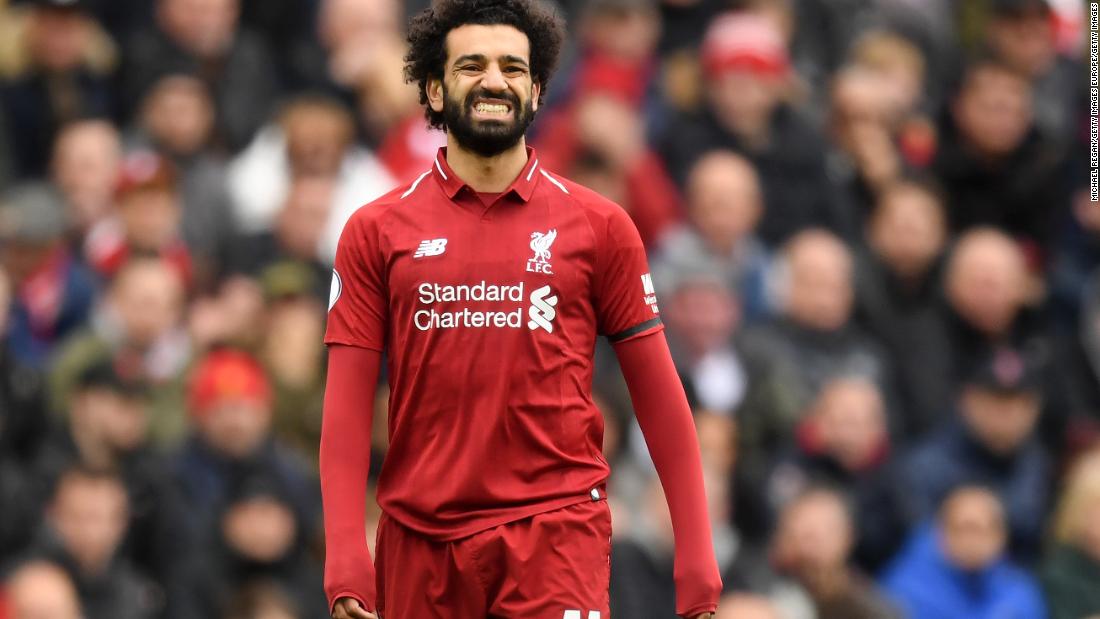
Pumping hearts and shortness of breath will coincide with crucial, split-second decision making on the pitch. Harnessing those nerves is what allowed both teams to miraculously overcome three-goal semifinal deficits en route to Madrid.
That mental toughness is what separates champions from also-rans, say coaching insiders.
"One of the interesting things I noticed watching the games from a distance is the influence of the mental factor of fear in the final minutes of a game, and how many times decisions have been made for fear factors," former Arsenal manager Arsene Wenger told CNN Sport.
"Most of the time it's down to panic on the other side, where the players suddenly change their game because they are close to the end," he added. "I would say that many (crucial) decisions are made in the final part of the game."
"Tottenham (and) Liverpool deserve a lot of credit for continuing to play."
In the 2006 final, Wenger's Arsenal fell victim to a moment of madness, as goalkeeper Jens Lehmann was sent off after just 18 minutes for a clumsy challenge.
Playing with a man down, Arsenal gave up two late goals to Barcelona, losing its only Champions League final to date.
In the second leg of this year's Champions League semifinal against Spurs, Wenger believes Ajax's young team was culpable of allowing fear to dominate the end of the match.
With the Dutch club up 3-0 on aggregate, Spurs striker Lucas Moura scored a hat trick in the second half to advance his club, the final goal arriving in the last seconds of extra time.
Gone was the free-flowing passing that defined Ajax in the tournament, replaced instead by rushed clearances that bred fear into the team.
"(Ajax), for example, instead of keeping calm and focused and composed on the ball, the team kicked the ball anywhere, headed it anywhere, and you feel the sense of panic," Wenger said. "This, most of the time, is detrimental to the team who panics."
'Spursy' no more
Succumbing to that fear factor in the dying moments of matches is something that Tottenham, fairly or unfairly, has become synonymous with over the years.
The moniker 'Spursy' began life as a jibe towards Tottenham from rival supporters for throwing games away in the final minutes.
After Mauricio Pochettino's first game in charge, a 1-0 victory over West Ham almost five years ago, the Argentine insisted the mentality of the club needed transforming.
Even if Spurs do not come out on top in Saturday's showpiece final, it would be hard to argue that his transformation isn't complete.
Would the Tottenham of five years ago have persevered against a Manchester City onslaught to reach the semifinals? Would the Tottenham Pochettino inherited have come back from three goals down against Ajax to reach the final? The answer on both counts is probably not.
Spurs' increase in mental fortitude is the result of hours of painstaking work, equaling its efforts on the training pitch. The team's preparation in the three weeks leading up to Saturday's final has been no different.
"It's true that we have spent more time (on the mental preparation) than tactical or physical," Pochettino told reporters Monday. "That is one of the areas I think we've worked on the most.
"We designed some strategies to work on every single day. Football is a context of emotion and you know very well that after five years I am telling you the same thing.
"The final is going to be decisive, not a battle between Klopp and Pochettino or a tactical battle, it's going to be about emotion and emotion will be decisive.
"Whoever is going to manage (emotions) better and deal better with the emotional area I think is going to be close to winning."
Second chance
This time last season, Jurgen Klopp and his Liverpool players were sitting in the same position, preparing for a final against Real Madrid.
But Liverpool was hampered by an early injury to striker Mohamed Salah -- and costly errors by goalie Loris Karius -- en route to a chastening 3-1 defeat.
Karius was replaced by Brazilian international Alisson Becker in the summer, and Liverpool has bounced back with mental toughness that is surprising even Klopp.
Ahead of Liverpool's epic semifinal second leg against Barcelona, the German admitted he told his players that it was "impossible" for them to come back from a three-goal deficit.
"But because it's you, I say we have a chance," he quickly added.
Klopp believes the disappointment and experience of last year's final will put his team in a better position on Saturday, but knows it won't be the decisive factor.
"We are all very excited about having the chance again," he told reporters. "Last year we played it and that gives us experience, of course four years ago a couple of us played another final (the 2016 Europa League final, a 3-1 Sevilla win over Liverpool).
"Yes we are probably more experienced than the other team but Poch is probably right, it doesn't really make the difference, it's about dealing with the situation in the best way.
"It's about using the things that brought you to the final. So far we controlled our emotions in a really good way, we let them go in the right manner. In the moment it's pure excitement.
"We're really looking forward to it and being really happy to have that chance again, that's what we wanted to have after last year and now we are here. I've never been part of a final with a better team than this."
Despite their success, both managers have been criticized for not wining enough trophies. Come Saturday evening, one of them will have that label erased by the mental fortitude of his team.
No comments:
Post a Comment